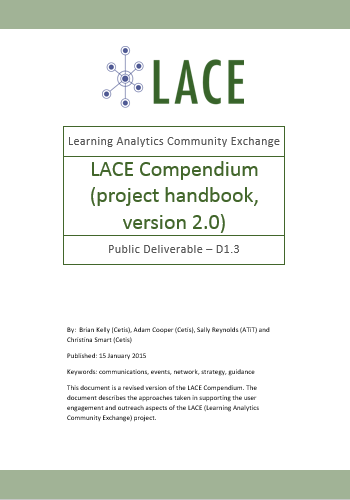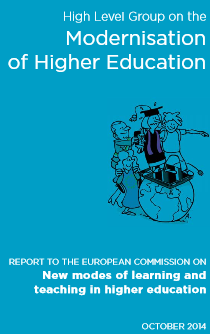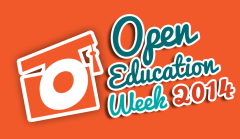Open Practices Covered in this Blog

I have written a number of
posts on various aspects of openness since this blog was launched back in 2007, with posts in recent months covering topics such as protocols to support open services (“
OpenSocial and the OpenSocial Foundation: Moves to W3C“); the implications of open licences (“
Flickr and Creative Commons; Lessons from Open Source Software“) and moves towards open practices in the UK (“
Report on Modernisation of Higher Education: Focus on Open Access and Learning Analytics“).
The LACE Compendium
I am currently working on the EU-funded LACE project. The
LACE (Learning Analytics Community Exchange) project team members have a similar commitment to open practices to support of the project. As an example we agreed that
the LACE Compendium, the project handbook which documents the policies are practices the team are taking in supporting the user engagement and dissemination aspects of the project, would be published under a Creative Commons licence.
 I have written a number of posts on various aspects of openness since this blog was launched back in 2007, with posts in recent months covering topics such as protocols to support open services (“OpenSocial and the OpenSocial Foundation: Moves to W3C“); the implications of open licences (“Flickr and Creative Commons; Lessons from Open Source Software“) and moves towards open practices in the UK (“Report on Modernisation of Higher Education: Focus on Open Access and Learning Analytics“).
I have written a number of posts on various aspects of openness since this blog was launched back in 2007, with posts in recent months covering topics such as protocols to support open services (“OpenSocial and the OpenSocial Foundation: Moves to W3C“); the implications of open licences (“Flickr and Creative Commons; Lessons from Open Source Software“) and moves towards open practices in the UK (“Report on Modernisation of Higher Education: Focus on Open Access and Learning Analytics“).

